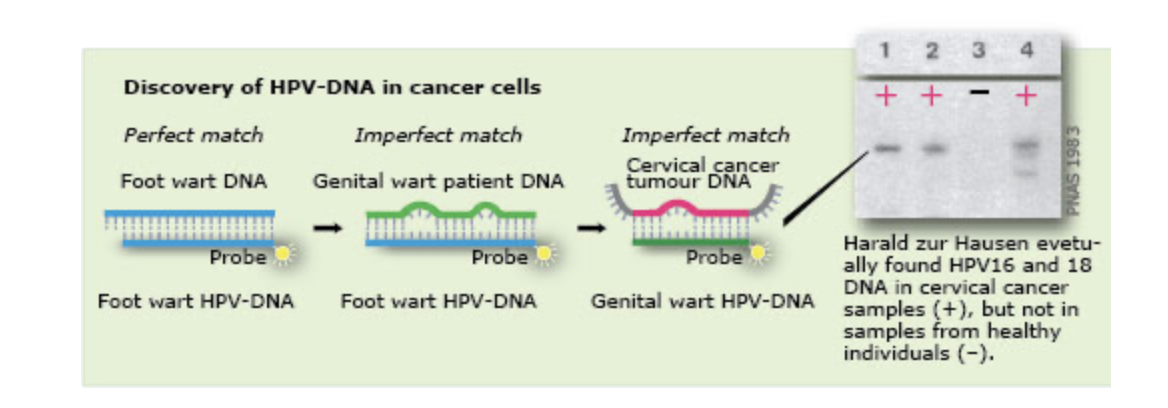Do cow products like dairy and beef increase the risk of cancers and MS?
Almost 50 years ago, the prestigious Lancet journal asked if cervical cancer was a sexually transmitted infection? Medical professionals and the public knew that nuns rarely, if ever, developed cervical cancer and the risk of cervical cancer was increased in individuals with an earlier age of sexual intercourse as well as in those with multiple partners. One of the main proponents of this sexually-transmitted-virus theory was a German scientist Harald zur Hausen, who postulated a role for human papilloma virus (HPV) in cervical cancer. His theory was that tumour cells, if they contained a cancer-causing (oncogenic) virus, should have this viral DNA integrated inside these cancers’ own blueprint. This was not prevailing scientific wisdom and his theories were widely dismissed. Undeterred, Zur Hausen doggedly kept pursuing his theory and until he eventually found Human Papilloma Virus (HPV 16 and 18) genetic material in cervical cancer cells, but not in healthy cervical cells. In 2008, the Nobel Assembly at Karolinska Institutet awarded the Nobel Prize in Physiology or Medicine to Harald zur Hausen for “for his discovery of human papilloma viruses causing cervical cancer”. Former Australian of the Year, Professor Ian Frazer of the University of Queensland—where I have an academic attachment—recently developed an HPV vaccine that has been widely adopted to reduce cervical cancer rates, and forms part of the New Zealand immunisation schedule. Zur Hansen was right after all. Therefore, I took notice when he published new research that he considers particularly exciting. As most of the work I am mentioning here was published in German scientific literature, it has received very little attention down under.

Image courtesy Nobel Prize.org “Discovery of HPV, human papilloma virus, in cervical cancer” https://www.nobelprize.org/prizes/medicine/2008/illustrated-information/
Maybe because Zur Hansen is based in Germany, I was surprised that there was no mention of his new research by medical research reviewers or the news media in our Anglosphere countries. I was particularly interested in Harald zur Hausen (and his scientist wife’s) new hypothesis: the link between dairy consumption and breast cancer (and indeed many cancers and multiple sclerosis). At first glance, this seems like plain blasphemy in New Zealand, where more than the cows, the dairy industry’s coffers are considered sacred. After all, New Zealand prides itself for being the biggest exporter of milk and beef. According to statista, New Zealand was the main exporter of milk worldwide with an export value of 7.8 billion U.S. dollars in 2021, followed by—guess who?—Germany with 3.2 billion dollars of milk exports.
The new hypothesis by this Nobel laureate and his wife started off in a similar vein to his cervical cancer research. By looking at those who don’t get the cancer. For example, it is known that lactose-intolerant women rarely develop breast cancer as they have to avoid cow’s milk due to the lactose it contains. In 2015, a large cohort study in Sweden involving over twenty thousand women noted that people with lactose intolerance, who did not consume dairy products especially cow’s milk, had decreased risks of lung, breast, and ovarian cancers. We know cancers always have a genetic preponderance. What was interesting in this study was that they also studied these women’s family members. Interestingly, family members did not have this lower risk and the reduced risk was specifically attributed to these individuals’ avoidance of dairy products. New Zealand is well known in scientific literature to have high breast cancer and bowel cancer rates. Studies have shown that New Zealand has much higher mortality in comparison to Australia when it comes to bowel cancer (33% excess in women, 26% in men), with smaller differences in the incidence rates (9.5% excess in women, 4% in men); New Zealand women had higher mortality compared to their Australian counterparts (16% excess) when it comes to breast cancer, even though attendance rates were surprisingly higher for mammograms in New Zealand (71%) when compared to Australia (54%) in the study mentioned in the link above.
Is there a virus lurking in cow’s milk causing cancer? Zur Hansen was already thinking along these lines and his team also noted that breast milk, in contrast to cow’s milk, was healthy due to the protective effect of oligosaccharides in breast milk, which develop halfway through pregnancy. These compounds bind to lectin receptors thereby masking the terminal molecule onto which viruses need to dock. Therefore, breast milk has some innate viral protection, but this is not the case with cow’s milk. So, is a virus causing breast cancer, colon cancer and even diseases like multiple sclerosis? What if this Nobel laureate is right and dairy products and beef contain a viral pathogen that could infect you as a child and trigger cancer or multiple sclerosis over forty years later? Reading his paper published in Basel, brought chills to my spine. After all, New Zealand has very high rates of both breast cancer and multiple sclerosis (MS). MS was particularly interesting. When I lived in India, I had never come across a case, and standard medical teaching was that MS is more prevalent at the poles and rare in the tropics. But Israel is an outlier with very high rates of MS even though it is not a polar country. Was it a coincidence that Israel has high dairy intake? According to Dairy Global, Israel has 1117,556 cows and produces around 1.5 billion liters of milk per year. Israeli people consume 117 liters per capita per year.
Harald zur Hausen and his scientist wife Ethel-Michele de Villiers are both based at DKFZ, the German Cancer Research Center in Heidelberg. They believe that viral pathogens cause chronic inflammation which leads to cancer and in their studies have identified European cows as a potential source. Their team identified viral single-stranded DNA rings, that they have called bovine meat and milk factors (BMMF), in the intestines of patients with colon cancer. As they noted in their article “This new class of pathogen deserves, in our opinion at least, to become the focus of cancer development and research into further chronic diseases.”
Needless to say, there was an outcry from the German dairy industry—second only to New Zealand in global stature. It made the DKFZ issue a statement advising the public to continue eating these foods, as per a report in Medscape (“Can Particles in Dairy and Beef Cause Cancer and MS?” – Medscape – Mar 13, 2023. Translated from the German Edition). The German Federal Institute for Risk Assessment and the Max Rubner Institute issued a report stating that they “continue to recommend including meat and cow’s milk as part of baby food due to their specific micronutrients. Avoiding certain foods is currently not recommended.”
The DKFZ may have issued a statement saying there was no evidence for anyone to stop eating dairy or beef and all was well. More research was needed they agreed. But that did not stop this team. de Villiers and zur Hausen proceeded to publish another article stating that MS is also associated with the consumption of cow’s milk and beef. The way Zur Hansen had looked for viral particles in cervical cancer, he looked for these DNA viral infectious agents in MS patients, searching for “Bovine Meat and Milk Factors” (BMMF) particles in the brain lesions of patients with MS. The team again isolated ring-shaped DNA molecules that proved to be closely related to BMMF from dairy and cattle blood. “The result was electrifying for us,” they were quoted as saying in the Medscape article I have cited above. Maybe it must be for us, too.
This blog is designed to bring you interesting research—sometimes my own discoveries, sometimes others’—that I feel are worth highlighting. I must confess, however, that I have not drunk cow’s milk for over 25 years (I have soy milk in my coffee), partly because I have a mild degree of lactose intolerance and I feel better for it. And, current health recommendations do not recommend stopping consumption of dairy milk or beef.
THE END
IMPORTANT: This blog is about science-communication, education, interesting science, and new medical research to do with (mostly) health and skin. It is not individual one-on-one medical advice. Please do not stop any medications without consulting your own doctor.
In 2015, Dr Sharad Paul was awarded (at APAC, Asia Pacific’s largest health forum) the Ko Awatea International Excellence Award for ‘Leading Health Improvement on a Global Scale’, for his role in improving skin cancer management, education and patient-centered care internationally. He recently delivered the keynote at the “Innovations on Cancer” Tucson Symposium in America.
Written By
Dr Sharad Paul
Dr Sharad Paul is an award winning, world renowned recognised skin-cancer expert and thought-leader.






